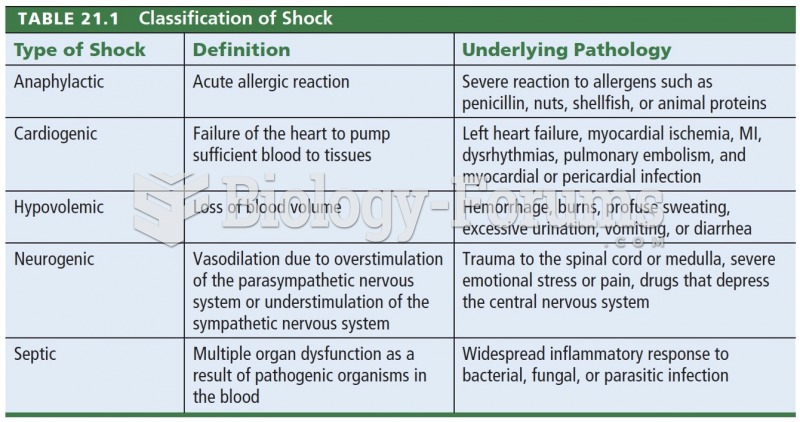|
|
|
The top five reasons that children stay home from school are as follows: colds, stomach flu (gastroenteritis), ear infection (otitis media), pink eye (conjunctivitis), and sore throat.
The toxic levels for lithium carbonate are close to the therapeutic levels. Signs of toxicity include fine hand tremor, polyuria, mild thirst, nausea, general discomfort, diarrhea, vomiting, drowsiness, muscular weakness, lack of coordination, ataxia, giddiness, tinnitus, and blurred vision.
People with alcoholism are at a much greater risk of malnutrition than are other people and usually exhibit low levels of most vitamins (especially folic acid). This is because alcohol often takes the place of 50% of their daily intake of calories, with little nutritional value contained in it.
Medication errors are more common among seriously ill patients than with those with minor conditions.
Persons who overdose with cardiac glycosides have a better chance of overall survival if they can survive the first 24 hours after the overdose.
 Antiparkinson Drugs Focus on Restoring Dopamine Function and Blocking Cholinergic Activity in the Ni
Antiparkinson Drugs Focus on Restoring Dopamine Function and Blocking Cholinergic Activity in the Ni
 Multiple-dose drug administration. Drug A and drug B are administered every 12 hours. Drug B reaches ...
Multiple-dose drug administration. Drug A and drug B are administered every 12 hours. Drug B reaches ...





